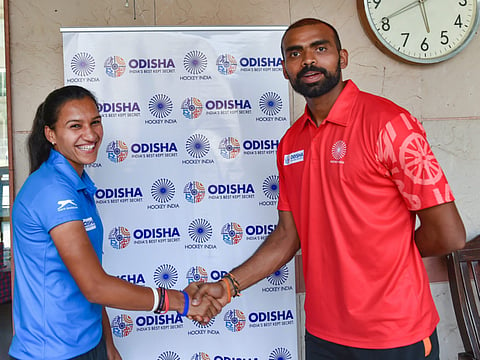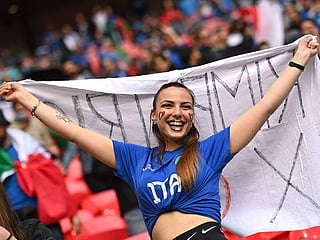Tokyo 2020: This Indian team capable of scoring in dying minutes, says legendary goalkeeper
Veteran of Barcelona, Atlanta Games calls Olympics the benchmark of competitive hockey

Kolkata: The current Indian hockey team’s change in mindset of being able to score goals in the dying minutes should stand them in good stead in their pursuit of that elusive medal in Tokyo 2020, according to AB Subbaiah, India’s goalkeeper in the 1992 and ‘96 Olympic Games.
“I like the shift in mentality of the current team. Now, the Indian team has the habit of scoring in the dying minutes of the game whereas earlier they used to concede goals in the final period. The team has an experienced defence line, P.R. Sreejesh (goalkeeper) has been consistent for many years, Harmanpreet looks confident in his drag flicks.
‘‘The midfield looks solid and energetic, led ably by Manpreet, and the forward line is extremely opportunistic and sharp. If the team can emulate their performances from the last two years and play to their potential in the Olympics, then I am sure that they can win a medal this time around,” the veteran of Barcelona and Atlanta Games told Hockey India.
Every team adopts a four-year cycle to their preparation because of the Olympics. This is why so many veterans retire after the Olympics and new players are given a chance to prove themselves. You train for four years to compete at this stage

“The people of India are looking forward to a good performance from our athletes in Tokyo. I hope that both the men and women’s hockey team can lead the way for the rest of the contingent,” said the dapper Subbaiah, who went to become a coach, commentator and leading hockey official.
Looking back at the campaign of his teams, Subbaiah has fond memories of the Games despite the near-misses. “The Olympics are the benchmark in tbhe competitive hockey circle. Every team adopts a four-year cycle to their preparation because of the Olympics. This is why so many veterans retire after the Olympics and new players are given a chance to prove themselves. You train for four years to compete at this stage. The top teams always have some new tricks up their sleeve which they don’t reveal in any tournaments or test games before the Olympics,” he said.
Billed as an exceptional team in ‘92 edition, Subbaiah felt it was a missed opportunity for them to attain success on the biggest stage as they went into the tournament in blistering form. “Our team had prepared really well before the 1992 Olympics. I remember that we won 13 out of 15 matches in the lead up to the competition, but we had played our full-strength team in those matches. As a result, we lacked a surprise element in the Olympics and our opponents became familiar with our gameplan. We lost some crucial league games early on, which made it difficult for us to get through to the semi-finals,” he reminisced.
Subbaiah manned the Indian goal in over 100 appearances over the span of a decade between 1988 and 1998. A two-time silver medallist in the Asian Games before eventually claiming the coveted gold medal in 1998, he however named a India-Pakistan game from a sub-continental competition as his most memorable outing.
“In early 1995, we played against Pakistan in the final of the SAF Games in Chennai. Pakistan had just recently been crowned the world champions a few months ago and they were undoubtedly the favourites against us before the match. We won the final 5-2 and the fans treated us like absolute heroes. They followed us all the way back to our hotel to celebrate. That was the day I realised what it means to everyone when India win against Pakistan,” he remembered.
Sign up for the Daily Briefing
Get the latest news and updates straight to your inbox









